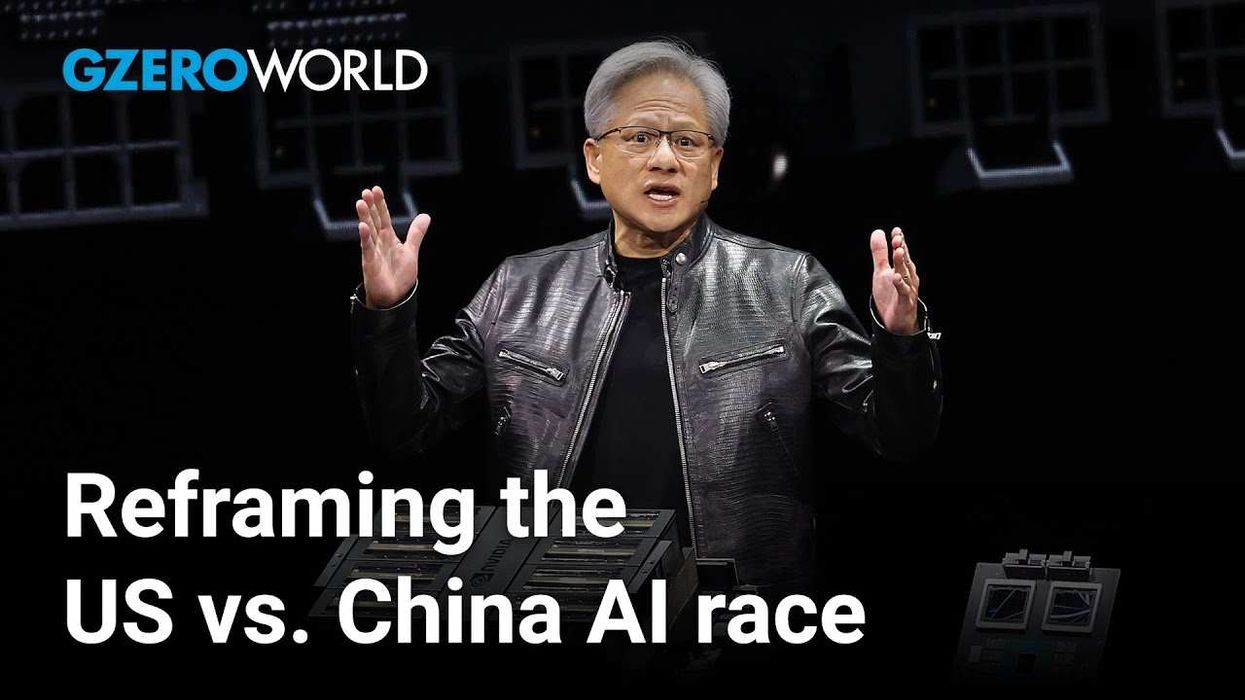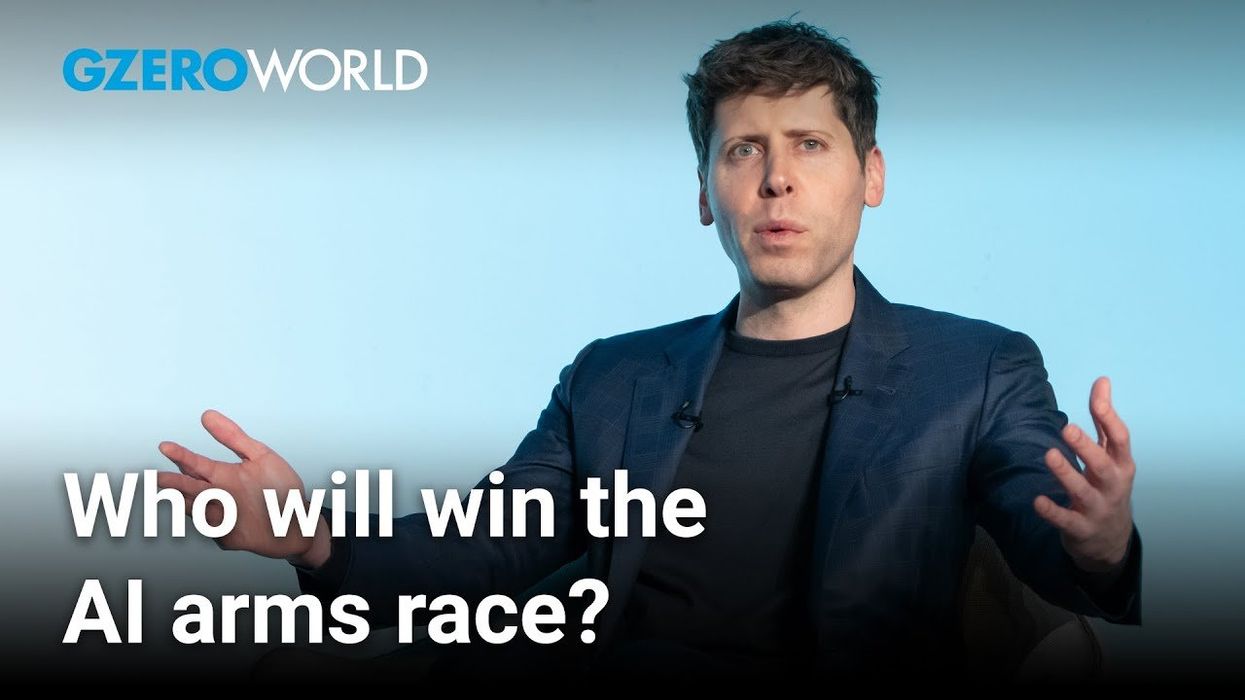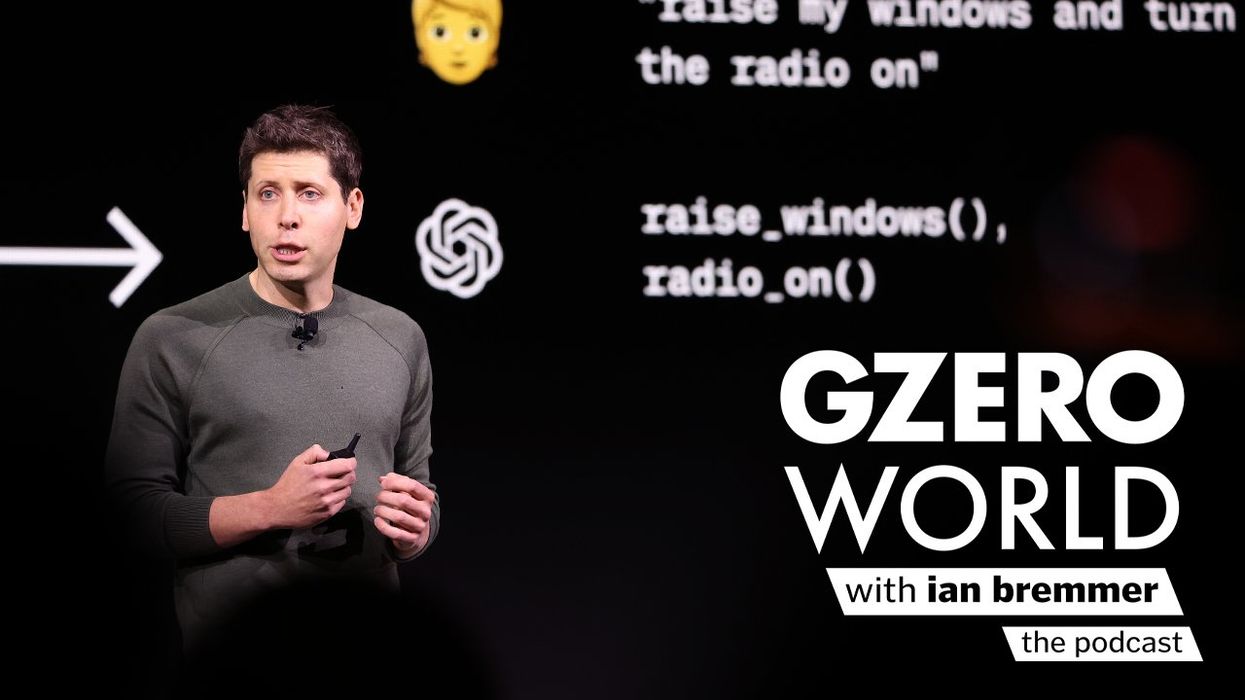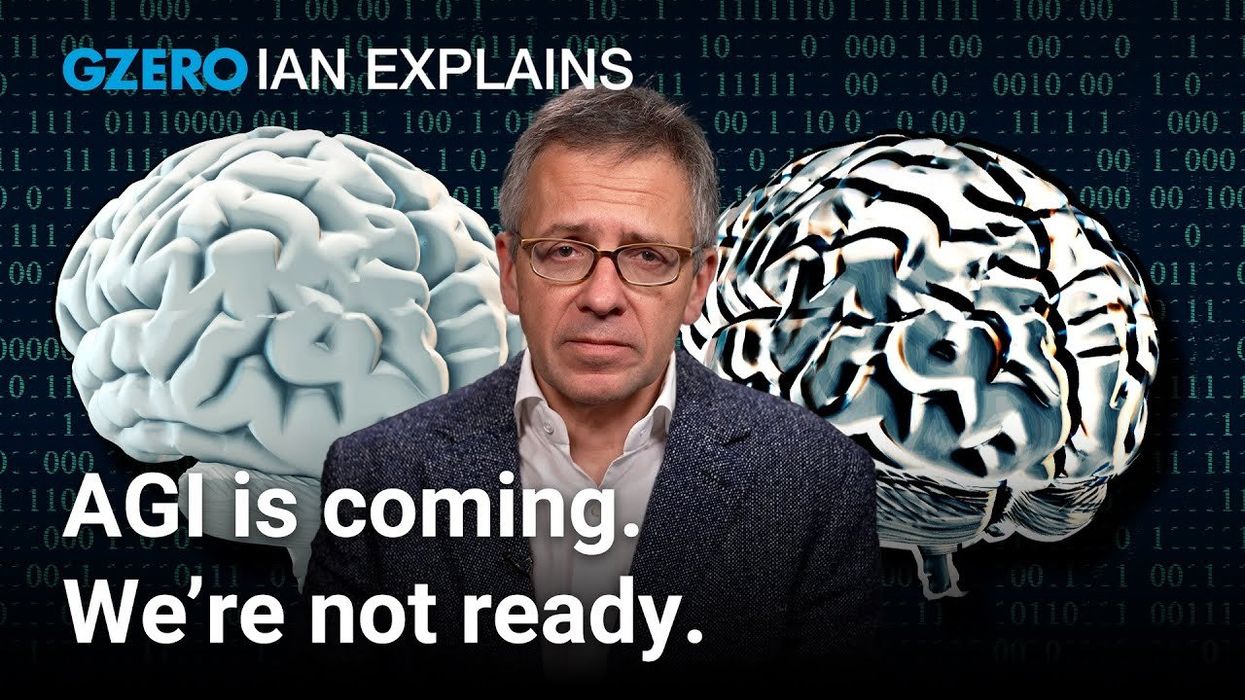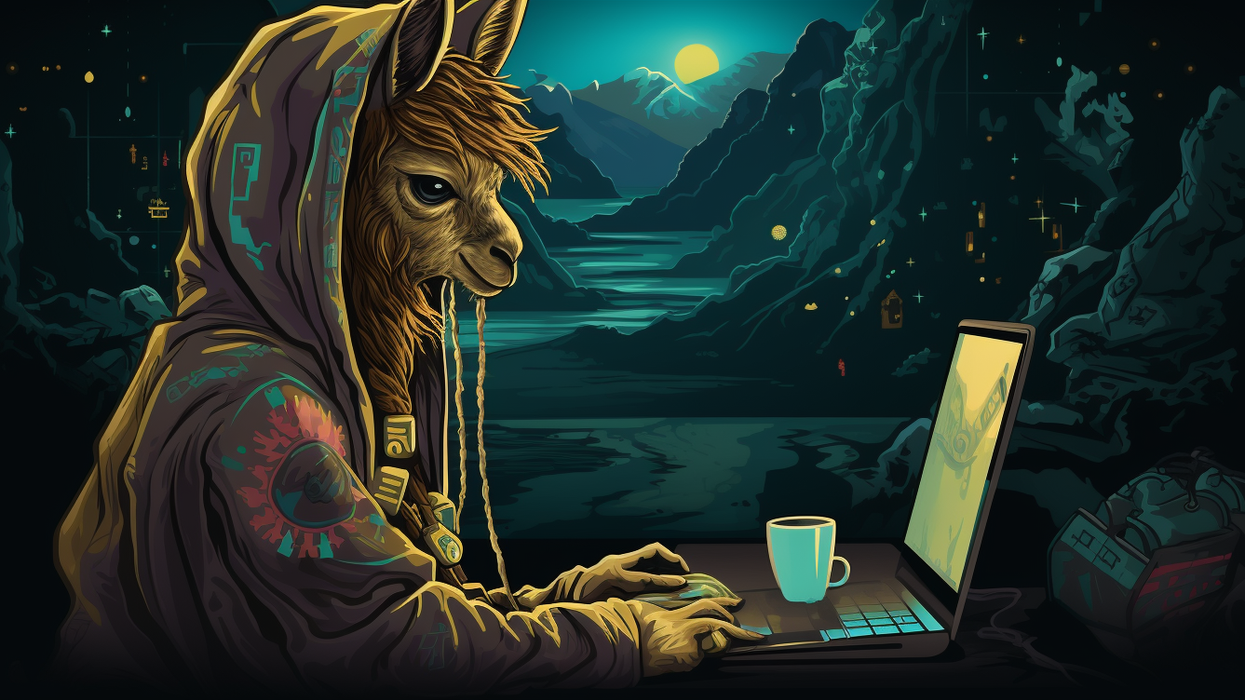GZERO World Clips
China isn't racing to AGI, why is the US?
The real US-China AI race isn’t about who builds the most powerful technology, but who applies and governs it in ways that strengthen—rather than undermine—society, Tristan Harris tells Ian Bremmer on GZERO World.
Oct 28, 2025
